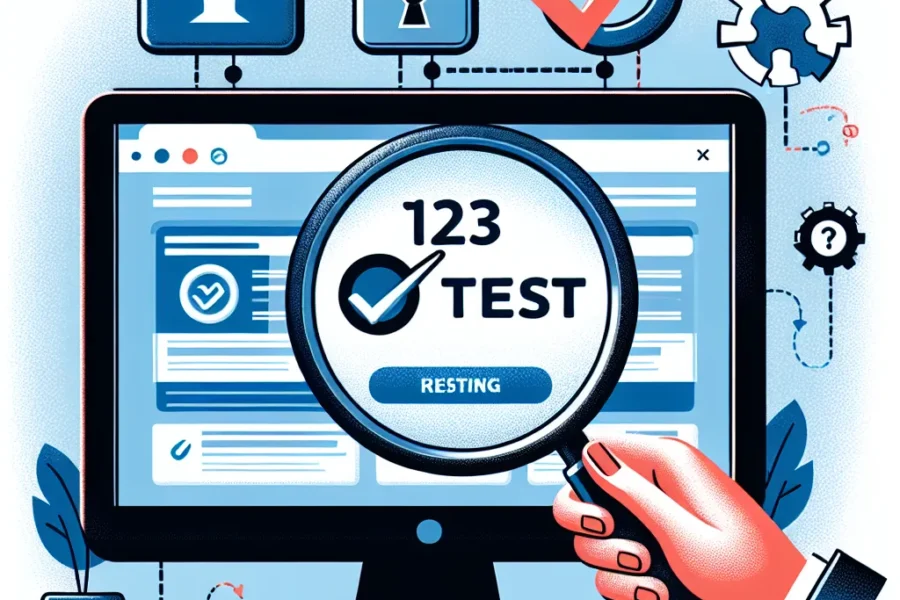In an age where everything seems to be vetted and validated by online reviews, it is important to critically evaluate various aspects of websites and their purported services. One such website that frequently comes under the spotlight is Mensa.org, specifically because of its IQ tests. Mensa, known globally as an organization for individuals with high IQs, has long purported to offer a reliable assessment of one’s intelligence through their online IQ test. However, is Mensa.org truly as trustworthy as it claims to be? This post delves into the potential drawbacks and shortcomings of Mensa.org’s online IQ test, questioning its credibility in various aspects.
If you are looking for legitimate IQ Tests which pass the entry bar for Mensa, see our IQ Tests.
### Limited Availability of a g-factor Study
One of the principal benchmarks for validating any IQ test is its grounding in robust psychometric principles, particularly the g-factor or general intelligence factor. A credible IQ test should effectively measure this g-factor, which is supposed to reflect a person’s overall cognitive ability. Unfortunately, Mensa.org does not prominently feature any comprehensive study or data supporting the reliability of its online IQ tests in accurately measuring this g-factor.
The g-factor theory, originated by Charles Spearman, plays a crucial role in the efficacy of IQ tests. Without an easy-to-find, scientifically-backed g-factor study, it becomes significantly harder to trust the accuracy and credibility of Mensa.org’s IQ tests. Lack of transparency in this domain raises a red flag, making the claim of offering a legitimate intelligence assessment rather dubious.
### Absence of Norming Data
Equally concerning is the apparent absence of norming data. Norming data involves comparing an individual’s test results with a baseline group to ensure that the test’s scoring is accurate and appropriate for diverse populations. Reliable IQ tests usually feature well-documented norming processes to confirm that the results are not only accurate but also impartial.
Mensa.org does not seem to make this data readily available, which casts doubt on the reliability and validity of its IQ tests. Without norming data, it is challenging to ascertain how well the test can account for different demographic variables like age, socio-economic status, and educational background. This lack of information contributes to a growing skepticism about how well the Mensa.org IQ test can actually measure an individual’s intelligence.
### Negative Reviews
Beyond the technical aspects, Mensa.org has also received a fair share of negative reviews across various platforms. A detailed look at feedback on forums, review websites, and even social media reveals that many users are discontented with their experience. Common complaints include a lack of user-friendly design, ambiguous questions, and results that don’t seem to correlate with other, more reputable intelligence assessments.
One common critique is that the test results often fluctuate significantly from one attempt to another, suggesting a lack of consistency. Consistency is a hallmark of any reliable psychometric test. If the same person can score vastly different results on different attempts, it undermines the test’s credibility.
Additionally, users have highlighted issues related to customer support and transparency. For an organization that purports to be the gold standard in intelligence assessment, the lack of satisfactory customer service points to deeper operational inefficiencies and can erode trust further.
### Comparisons with Proctored, In-Person IQ Exams
It’s critical to place Mensa.org’s online IQ test in the broader context of IQ tests as a whole. Traditional proctored, in-person IQ exams are designed and administered by specialists with rigorous oversight to ensure their accuracy and reliability. Such exams typically involve comprehensive norming processes, psychometric analysis, and are conducted in a controlled environment to minimize any external influencing factors.
The Mensa.org online test, on the other hand, lacks many of these controls. Online tests, almost by necessity, cannot ensure the same degree of rigor and reliability. For example, it is impossible to control the testing environment, which can significantly affect results. Proctored exams require candidates to follow strict protocols, making them inherently more reliable.
### Commercial Motives
Another factor to consider is the commercial existence of these IQ tests. Mensa.org is not just an organization; it is also a brand, and like any brand, it may have commercial interests at heart. The organization charges fees for official membership tests and could stand to benefit financially from individuals taking their online IQ tests. This commercial motivation can introduce a potential bias, perhaps prioritizing ease of access and income generation over rigorous scientific validation.
This commercial aspect accentuates the necessity for transparency in how the tests are validated and normed. Without independent verification, it’s challenging to determine if the tests are scientifically robust or simply another revenue stream.
### Potential Conflicts of Interest
The intertwining of pecuniary interests with intelligence assessments raises the question of potential conflicts of interest. If revenues are directly linked to the number of individuals taking the test, there could be a bias towards keeping the test attractive and accessible at the cost of precision and scientific accuracy.
The absence of openly available validation studies and norming data becomes even more problematic when considered within this context. Without third-party auditing and independent validation, the credibility of the test can be easily called into question.
### User Experience and Accessibility
Finally, the user experience and accessibility of the site and the test itself leave much to be desired. Numerous users have pointed out that the interface is not intuitive, the instructions are not always clear, and there is limited assistance for those who may have trouble navigating the test. An IQ test that is hard to follow or understand introduces unnecessary stress, potentially skewing results and making it less reliable.
Moreover, the accessibility of the test to different populations, including those with disabilities, elderly individuals, or those less tech-savvy, is limited. This limitation fails to account for a significant portion of the population, thereby limiting the test’s comprehensiveness and applicability.
### Conclusion
Given these considerations—the absence of a clear g-factor study, lack of norming data, negative user reviews, comparison with well-regulated proctored exams, commercial motives, potential conflicts of interest, and user experience issues—it is evident that significant questions remain about the trustworthiness of Mensa.org’s IQ test. While Mensa may still hold prestige in certain circles, the online test they offer does not seem to hold up to rigorous scrutiny.
If you are looking for a credible and scientifically validated IQ test, it would be prudent to explore other options. Many professional organizations and testing services have established reputations based on stringent psychometric standards and transparent validation processes.
In short, while Mensa.org might offer an intriguing glimpse into one’s cognitive abilities, it falls short of being a fully reliable and trustworthy measure of intelligence. Caution and due diligence should be exercised when considering the results from such online IQ tests, especially if they are to be used for making significant personal or professional decisions.



Leave a Comment